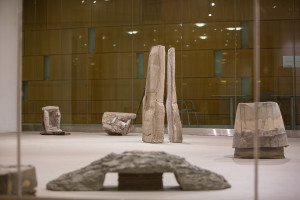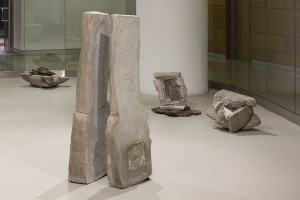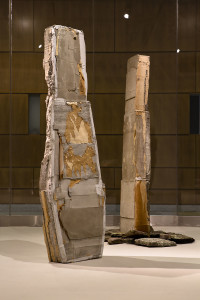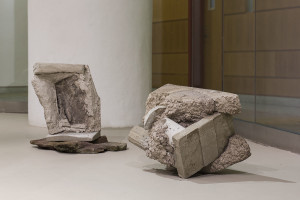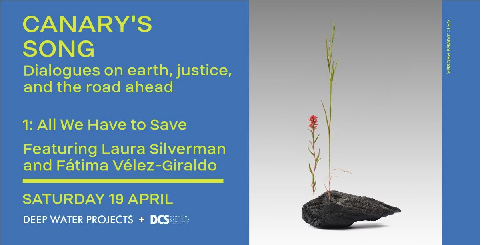California Democrats Approve Sweeping Fossil Fuel Divestment Resolution
May 26, 2015The DCS Frac Sand Poster is Here
June 1, 2015Ruth Hardinger
The Basement Rocks encourages a look below Earth’s surface where the largest biomass on the planet resides. These underground necessary forces of life exist in the dark. I’m intrigued by how this becomes an association with early civilizations legends and mythologies that recognized human connection to, and dependence on the earth underneath our feet.
Basement rocks, the most ancient planetary stones, are 1-3 billion years old, these formations ultimately made our planet. Often found under the sedimentary rocks, these granite, schist, basalt and igneous basement rocks can be set closer to the surface and can be thicker than 30 miles below the lower sedimentary rocks. Are the basement rocks active and alive? Yes!
This exhibition looks below the Earth’s surface, aligning expressive ancient civilization’s legends and mythologies to contemporary geological and soil science to consider value of relationships between science and spirit.
The Basement Rocks is not an illustration – it is an artistic expression to honor the activity and vitality in a place we don’t see that yet contains profound levels of life. The Humanity Gallery is a perfect place to exhibit these concepts, not only because of the consideration of humanity with respect to the gathering of sculptures as a community encased in the glass walls that we see through, a space that (in this case) could associate to a gigantic petri dish.
My concrete and cardboard works, the Envoys, are messengers with several Agents.
When I started casting concrete and cement in cardboard boxes I thought of it as a difficult or impossible action. The word names of these materials intrigued me: Concrete = fact, truth and substantiality. Cardboard = something without substance. These stelae-like sculptures became totemic forms, and can even be interpreted as a satiric worship of industrial matter that has changed the underground in negative ways. Yet during those procedures, the underground has provided humanity a life with more luxury. Conflicting forces are expressed, and instability has been created by excessiveness.
There will be a brief conversation about this installation during the opening and will include how the underground has influenced my work and my concerns about environmental impacts in the underground. My friend, musician, Andy Chase, has produced a collage of sounds entirely from the underground that will be played during the opening.
Thank you Barbara Arrindell, Bryce Payne, PhD and Ron Bishop, PhD for information shared regarding the geological and bacterial science, Ben Holtzman for sharing his seismic sounds and Vera Scroggins for sharing her sounds of fracking.
March 2015
Dear friends, This is my letter to you about loving the underground.

